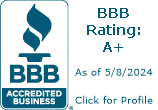What’s The Deal With Asphalt Shingles?
 When you’re looking for a new roof replacement, choosing the right shingle material is just as important as selecting the right roofing contractors. It’s estimated that four in five homes across the United States are fitted with asphalt shingles, but is that what’s best for your home?
When you’re looking for a new roof replacement, choosing the right shingle material is just as important as selecting the right roofing contractors. It’s estimated that four in five homes across the United States are fitted with asphalt shingles, but is that what’s best for your home?
When you’re choosing the best residential roofing, here’s everything you should know about the perks and pitfalls of asphalt shingles.
Asphalt shingles: What are they?
Asphalt shingles are a type of residential roofing shingle. The shingle is outfitted with asphalt as a means of waterproofing. As mentioned above, it’s one of the most popular types of roofing used in the United States due to its relatively low cost and ease of installation. They’re commonly used on sloped roofs or smaller residences.
Keep in mind that the base material for an asphalt shingle can differ depending on the manufacturer. Asphalt shingles are given their name thanks to the waterproofing top layer applied to the base. Luckily, these shingles can be bought in a variety of colors, textures, and thicknesses to suit your needs as a homeowner.
The two primary types of shingles
Asphalt shingles typically come in two different types: organic and fiberglass.
Organic shingles are made from paper or other wood-fiber materials before they’re coated with a thick layer of asphalt. Organic shingles typically have around 40% more asphalt coating than fiberglass options.
Fiberglass shingles are the primary replacement for asbestos options often found in organic mat shingles. Fiberglass relies on a base layer of glass fibers for reinforcement before it is coated in asphalt. While this makes it more fire-resistant than organic shingles, it also makes it more brittle in cold environments.
The perks and pitfalls of asphalt shingles
Even though asphalt shingles are the most commonly used shingle in America, it doesn’t mean they’re right for your home. Here are some of the pros and cons associated with asphalt shingles:
Perks: Asphalt shingles are well-known for their durability, affordability, fire resistance, and solar reflecting qualities. This makes them perfect for warm-weather conditions and cooler-weather locations thanks to the options for base layers. They’re also resistant to algae and easy to repair with the help of a quality roofing contractor.
Pitfalls: Like all roofs, asphalt shingles need regular maintenance to clear the surface of algae and other molds. Additionally, asphalt shingles are susceptible to damage from hail, putting them at risk for other environmental factors like rain. A final pitfall is that they aren’t organic as their base layer claims to be. Asphalt is made from a petroleum by-product, making them a non-environmentally friendly product.
Do you have more questions on what residential roofing is right for your home? Rely on Style Roofing today for more information.











